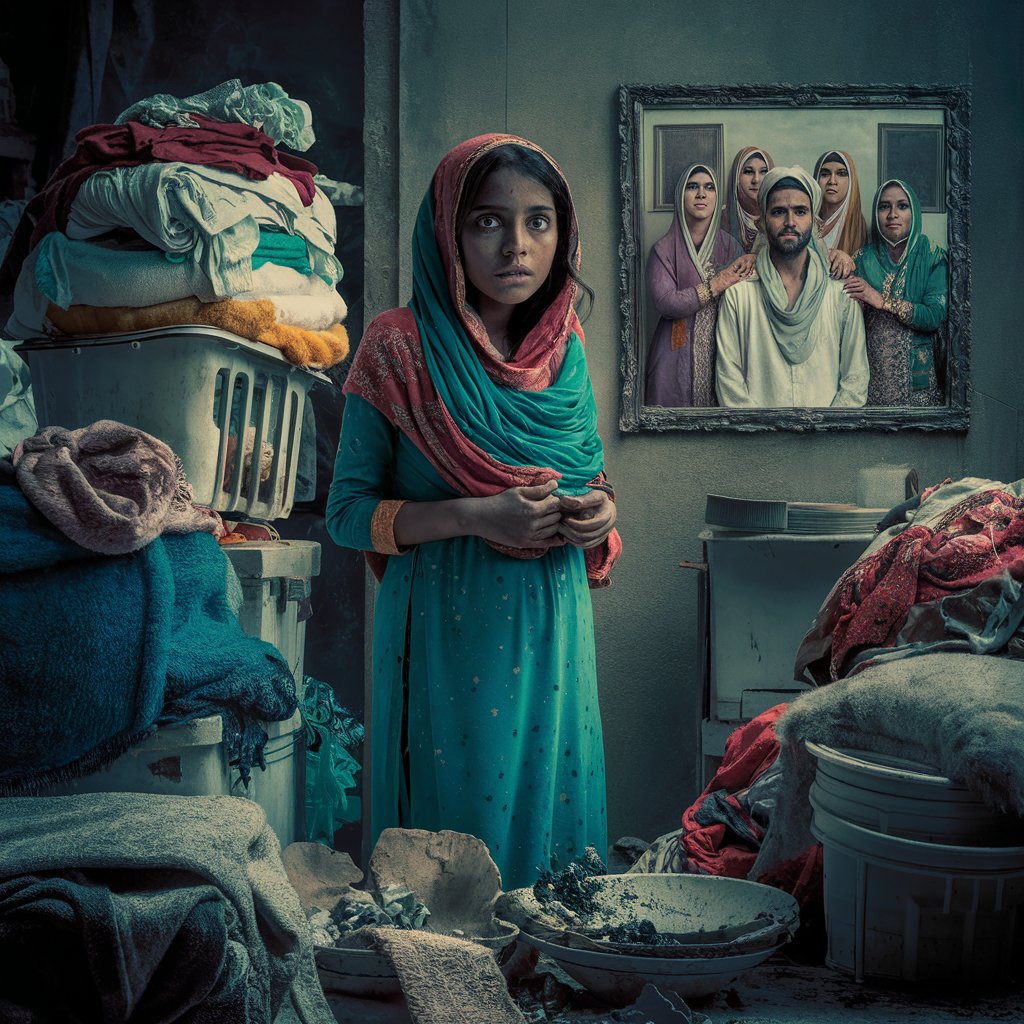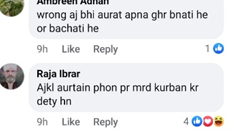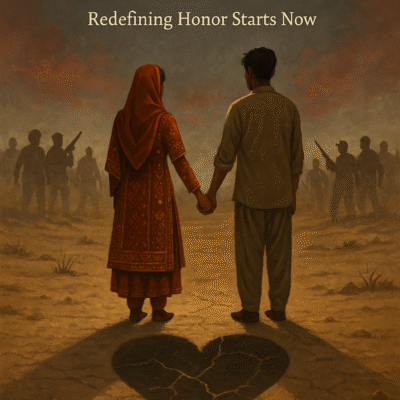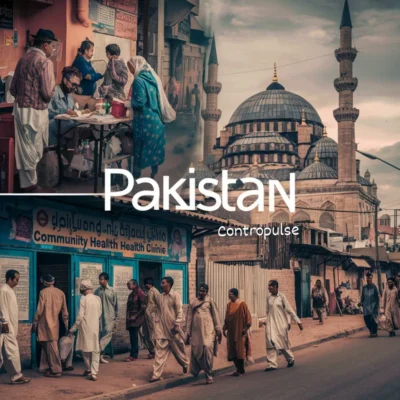From social media feeds to public speeches, influential figures have immense power over our perceptions of gender and marriage. When they promote traditional ideas or make controversial statements, they shape how society thinks and behaves. But what happens when these voices reinforce outdated ideals and challenge progress toward equality?

Introduction
To maintain the social structures of any society, the guidance of Muslim scholars is essential, especially regarding marriage, which is a crucial aspect of family and kinship. However, many contemporary scholars, such as Tariq Masood, also focus predominantly on the topic of marriage. While this is an important issue, their discussions frequently lack depth and fail to address the complexities and challenges within marital relationships. In patriarchal societies, scholars like Tariq Masood can hurt common men by reinforcing outdated and harmful ideas about marriage and gender roles. When these scholars make light of serious issues and encourage men to remarry without addressing the complexities of marital relationships, they promote a simplistic and often misogynistic view of marriage. The men as a result believe that they can control or dominate their wives and that problems in marriage can be easily solved by taking another wife.

Public figures, whether they are religious scholars or actors, have a huge impact on the general public. People admire them, and they have millions of followers who try to emulate them at any cost. When these figures say, ‘It is our life, and who are you to be concerned?’ it is important to remember that these are the very people who have indulged the public in their lives by posting on social media and sharing personal details. The things they post and even what they do in their personal lives all matter and influence their followers greatly. For example, in Pakistan, Iqrar ul Hassan, a well-known Pakistani presenter, and journalist, famous for his investigative show “Sar_e_Aam”, has a large following on social media, where he shares details about his personal and work life. Iqrar revealed that he has three wives, which is allowed in Islam under certain conditions. His lifestyle has become a topic of admiration among many of his young followers, especially young men. On social media, many people express their admiration for him, with some saying things like, “The real fun is doing Iqrar bhai only”. This admiration suggests that his followers might see polygamy as something desirable. By publically living this way, Iqrar reinforces traditional gender norms that support men having multiple wives while expecting women to accept this practice.
Junaid Jamshaid was a famous Pakistani singer turned religious preacher. He had a significant impact on the public through his transformation from a pop star to a devout Muslim preacher. After leaving his music careerJunaid focused on preaching Islamic values and promoting conservative views on family and gender roles. His teachings emphasized the importance of traditional marital practices and the roles of men and women in marriage. In a televised interview, he stated:
Women are meant to stay at home and take care of the household. They should focus on their roles as mothers and wives and should not seek to compare with men in the professional sphere.
This statement reflects his conservative view that women’s primary responsibility is towards their family and home, aligning with traditional patriarchal values. His teachings often encouraged women to dress modestly, avoid public attention, and adhere to what he described as Islamic principles of femininity.
In recent years, polygamy has become more normalized in Pakistan’s marital culture and is presented as a solution for a variety of societal ills (Zakaria, 01 Oct 2014). Mufti Tariq Masood’s statement that “a man marries many women because Allah has given him more sexual desires than women, and Allah makes more women to satisfy men’s lust” has significant implications for the general public. This kind of rhetoric reinforces gender stereotypes and perpetuates a patriarchal mindset, suggesting that men’s desires are naturally greater and more important than those of women. It implies that women’s primary role is to satisfy men’s sexual needs, which reduces women to mere objects of desire rather than acknowledging their individuality, autonomy, and equal partnership in marriage.
Such statements can have a profound influence on social attitudes, particularly in patriarchal societies where gender roles are already rigidly defined. When religious figures, who hold considerable authority and respect, make these kinds of assertions, it can validate and normalize the subordination of women. Men may feel justified in taking multiple wives to satisfy their desires, potentially leading to a lack of consideration for the emotional and psychological well-being of women. It can also discourage efforts toward promoting gender equality, as it reinforces the idea that men’s needs and desires are paramount. Moreover, this perspective can contribute to the marginalization of women’s voices and experiences. It undermines the concept of mutual respect and partnership which is essential for healthy and equitable marriages. By framing marriages in terms of male desire and female obligation, it distorts the true nature of marital relationships and hinders the progress towards more balanced and respectful interactions between men and women in society.
Mufti Tariq Masood’s statement, “Why own a pet when you can own a wife? Capture one, two, three, four wives instead of a dog,” is deeply problematic and has a troubling impact on societal attitudes towards women. This statement not only objectifies women but also equates them to property or pets, stripping them of their humanity and individuality. Such rhetoric perpetuates the notion that women are commodities to be acquired and owned, reinforcing harmful patriarchal norms. This mindset can exacerbate issues of gender-based violence, coercion, and a lack of autonomy for women, further entrenching their subordinate status. It sends a damaging message that devalues women and their contributions to society, making it more challenging to achieve a more equitable social order.

In one of his statements, Mufti Tariq admits to forcing his 13-year-old niece into marriage, saying that it is the husband’s role to decide her fate. This is extremely troubling as it highlights the coercive and abusive practices still present in some societies. Forcing a young girl into marriage violates her rights and puts her in a vulnerable and potentially dangerous situation. His claim that the husband should determine her fate further emphasizes a significant power imbalance, ignoring the girl’s autonomy and future. Such statements and actions perpetuate oppression and control and reinforce harmful patriarchal norms that see women and girls as subordinate to men. That is why ‘It is important to educate girls and assist them in becoming effective contributors to national development so that they do not remain dependent on their male relatives’ (Sattar, 04 Sep 2020).


We often see this judgment on social media, where people accuse women of not doing enough to save their homes. Instead, they portray the man as making sacrifices and tolerating her. In the comment sections, this narrative is frequently supported, but what’s interesting is that only men seem to agree with it. Not a single woman supports this view, which shows that men are deliberately trying to push women down both in physical and virtual worlds. This gender bias is stark and undeniable. It highlights the societal double standards and the pressure placed on women to bear the blame for marital issues, while men are depicted as victims or heroes. This kind of judgment not only perpetuates the mental and emotional suffering of women in polygamous marriages but also reinforces harmful stereotypes and power dynamics that disadvantage women.
Maulana Tariq Jameel’s incident further exemplifies how influential religious figures can propagate harmful perspectives. On April 23, 2020, Maulana Tariq Jameel spoke at a televised fundraising event for COVID-19 relief organized by the Pakistani Prime Minister’s Corona Relief Fund. During his speech, he made controversial remarks blaming the spread of immortality and natural disasters on the immodesity of women. He suggested that women’s lack of modesty was responsible for societal decay and divine punishments, including the pandemic. These comments sparked widespread criticism from women’s rights activists journalists, and the public. Critiques argued that his statements were not only misogynistic but also irresponsible, as they unfairly blamed women for the pandemic and natural disasters. Many felt that his remarks perpetuated harmful stereotypes and contributed to the oppression of women. Social media was filled with posts condemning his words, calling for a focus on real issues and challenges posed by the pandemic. Maulana Tariq Jameel’s remarks highlight how religious and public figures can significantly influence societal attitudes, often reinforcing patriarchal norms and harmful stereotypes. Just as Mufti Tariq Masood’s statements encourage a patriarchal view of marriage, Maulana Tariq Jameel’s comments about women’s modesty and societal ills reflect a similar trend of blaming and controlling women.
Conclusion
In conclusion, influential figures, whether they are religious scholars or celebrities, play a significant role in shaping gender norms and marital practices in society. Tariq Masood’s statements about polygamy and gender roles can make traditional and unfair ideas seem normal, suggesting that men’s desires are more important and that women should accept being in a less powerful position in marriage. This can lead to more inequality between men and women. Similarly, Junaid Jumshaid’s focus on traditional gender roles reinforces conservative views, affecting how society treats women. addressing these issues is crucial for more equitable and respectful relationships between men and women and for promoting gender equality in society.
References
https://www.dawn.com/news/1135346
https://www.dawn.com/news/1577829
https://images.app.goo.gl/CFyiQfq9oEdgrSx99






739 Comments